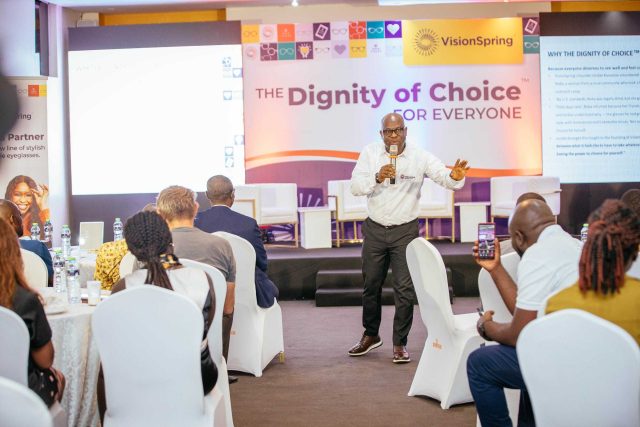The Head of Ophthalmology at the Ghana Health Service has sounded the alarm over a growing vision crisis, revealing that more than 95% of individuals requiring corrective eyewear in the country cannot afford it.
This staggering statistic has contributed to the rising rates of vision impairment and blindness across the nation, threatening the quality of life for millions of Ghanaians.
According to the expert, while corrective eyewear is a relatively simple solution to preventable vision problems, the high cost has left many Ghanaians without access to the glasses or lenses they need.
“Only 5% of individuals requiring corrective eyewear can afford it, leaving a staggering 95% to struggle with untreated vision impairment,” the expert revealed, emphasizing the urgent need for affordable eye care solutions in the country.
Globally, blindness ranks as one of the most feared ailments, second only to cancer, making it a significant public health issue. According to the World Health Organization (WHO), an estimated 161 million people worldwide live with some form of visual impairment, with 37 million classified as completely blind. A sobering 80% of those impacted reside in developing countries, such as Ghana.
In Ghana, several preventable conditions continue to drive visual impairment and blindness. The primary culprits include cataracts, glaucoma, refractive errors, diabetic retinopathy, and age-related macular degeneration (AMD).
Cataracts, which result in clouding of the eye lens, remain one of the leading causes of blindness, particularly among the elderly population.

Glaucoma, a silent yet devastating condition that damages the optic nerve, is another major issue. Often referred to as the “silent thief of sight,” glaucoma shows no early symptoms, making regular screenings essential.
“The leading causes of vision impairment and blindness in Ghana include refractive errors, cataracts, diabetic retinopathy, glaucoma, and age-related macular degeneration,” said the Head of Ophthalmology.
In an effort to address this growing public health issue, the Ghana Health Service has announced plans to expand its free eye screening services to rural areas, building on the success of similar programs in urban centers. This initiative aims to reach underserved populations who often have limited access to eye care services.
“As World Sight Day approaches, we urge Ghanaians to prioritize their eye health,” the expert emphasized. “Preventive care is key. Let’s work together to ensure everyone has access to quality eye care, no matter their income level or location.”

The expansion of eye screening services is part of the broader efforts by the government and health agencies to tackle the rising burden of eye diseases. By reaching more people, especially in hard-to-reach rural communities, health authorities hope to reduce the prevalence of blindness and other severe visual impairments across the country.
Experts emphasize the importance of preventive eye care, particularly regular eye examinations, to catch diseases like cataracts and glaucoma early, when treatment is most effective. Diabetic retinopathy, another leading cause of blindness, can be managed if detected early, but without regular screenings, many patients face severe vision loss.
Vision impairment, particularly in low-income countries, often results from treatable or preventable conditions. By improving affordability and accessibility to eye care services, Ghana has an opportunity to drastically reduce blindness and enhance the overall quality of life for its citizens.
With the upcoming World Sight Day, the Ghana Health Service is urging both the public and private sectors to prioritize eye care funding, expand awareness campaigns, and increase the availability of free or subsidized corrective eyewear.
Collaborative efforts between the government, NGOs, and international organizations could be key to overcoming the barriers of affordability and accessibility in eye care.
For now, the hope is that more Ghanaians will take advantage of the free eye screenings and other preventive services available, ensuring that preventable blindness becomes a thing of the past.
















